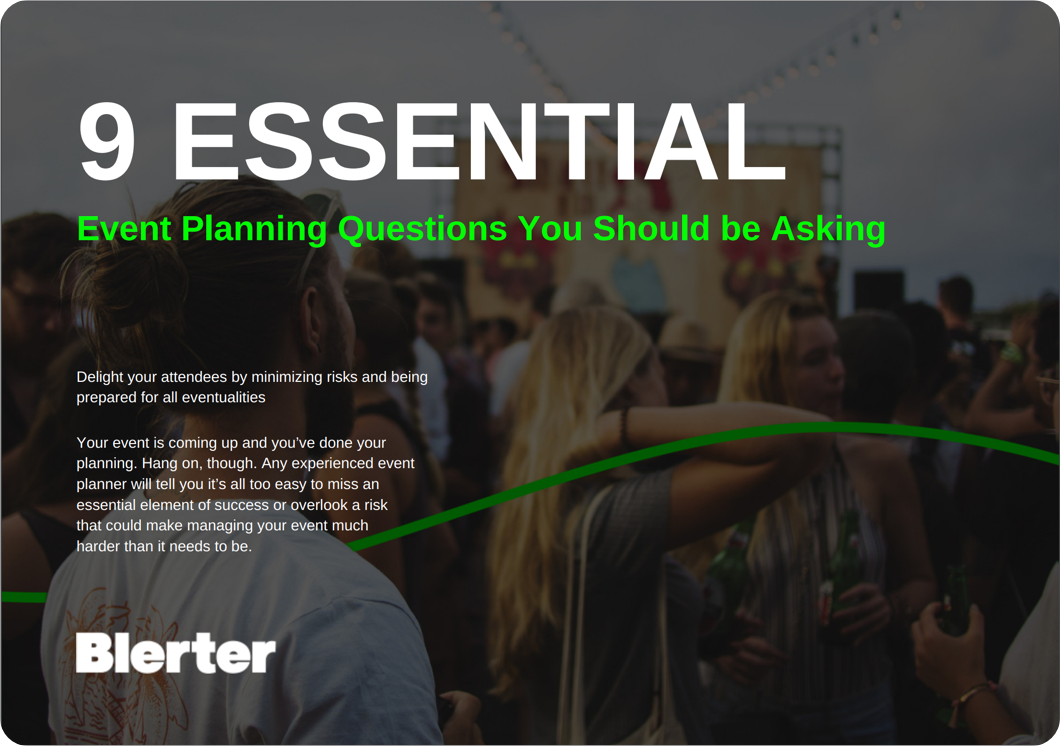If you’re an event planner, there’s a high chance you’ve been under the pump from time-to-time (99% of the time). Managing several tasks at once is always going to add extra pressure and unfortunately, these constraints will only continue to pile up.
Due to the stressful nature of the events industry, it’s only a matter of time before you and your staff burnout. As an event planner, you may have certain remedies that allow you to combat fatigue but what about your workers? Addressing staff fatigue is the first step, but creating a plan to manage it will be your true test.
Not sure where to start? Don’t stress, below we’ve put together a few of our best tips that will help you recognise and manage staff fatigue. So get comfy and prepare to unwind.
Before diving into the solution it’s important to recognise what influences fatigue in a work environment.
Inadequate time of sleep between shifts
Extended hours of work
Poorly designed rosters
Early or late shifts
Low nutritional foods
Monotonous tasks (repetitive)

Not only is fatigue a major source of stress among staff, but it can also significantly affect their capacity to function. If not managed appropriately the potential for workplace injuries are likely to occur.
According to VPPPA 38% of the American workforce sleeps less than 7 hours a night, as worker fatigue costs employers $138 billion annually in lost productivity. If these stats are evident in day-to-day work the repercussions in a stressful event environment will only be enhanced. As the event manager, it is your responsibility to identify and either mitigate or resolve the contributing factors. You might be thinking that avoiding staff fatigue is almost inevitable, as nobody is immune to tiredness and eventually they will plummet. However, if you have a plan or strategy in place you can prevent it.
Keep people moving (will prevent them from becoming unmotivated)
Keep people hydrated/well fed (provide nutritional foods that boost energy levels)
Match people with jobs they're physically suited to (so there aren’t limitations)
Learning a new skill (better for productivity)
Sharing a vision for the event (so everyone’s working towards the same goal)
Feeling you’re providing value/harnessing your strengths
Encourage people to help each other (teamwork makes the dream work)
Recognise when people go above and beyond (gratitude goes a long way)
Involved in charity fundraising (giving back to the local community)
Mindfulness / Emotional
Break out spaces (eg. yoga, relaxing spaces, team bonding exercises)
Mindful activities (board games, something that stimulates and educates the brain)
Digital breaks (keeping away from all technology)

Meeting new people (way of making friends)
Sharing experiences (inviting people to be communicative and vocal)
Being apart of a team
Next time you begin to plan your event, ensure you're targeting these 5 pillars when managing your staff’s well being. If you can do this effectively you’ll be killing two birds with one stone. Not only will you increase staff productivity and awareness, but the percentage of staff fatigue occurring would’ve drastically decreased.
Start times before 6am give workers less time to get adequate sleep, as it is very difficult to go to sleep during the early evening (6-9 pm), as our internal body clocks are set for alertness during this time
If you’re unable to combat staff fatigue before it strikes it is important to be able to pick up on the signs that might signal tiredness. Address it by looking at the problem through the eyes of the other.
1. Not processing information (slow response time, making wrong decisions, less attentive)
2. Making silly mistakes (taking shortcuts, getting distracted easily - accident rate will go up)
3. Responding emotionally (acting emotional instead of rational, no planning)
4. Being on edge (sleepy, ill, depressive, nervous, irritable)
5. Leaning heavily on caffeine and sugar (consuming well above the required amount)
6. Ask them (obvious one but if any of the above signs are showing then you can act straight away)
If you think any of your staff have started to show any of these signs or something similar, then managing it efficiently will be your next priority. If you don’t act quickly enough it will only amount to further risk for your staff and the people attending the event. Below are 4 tips that will help prevent your staff from further harm once fatigue has set in.
1. Have experienced volunteers roaming to help with staff cover for when a team member is fatigued. This will provide you another set of eyes and an extra safety blanket.
2. Buddy people up, ensure you have staff/volunteer looking after the crew member in need. This will ensure they get home safe or are able to take a break out of harms way.
3. Replenish your fatigued staff member. Get them to have a break and provide them with high nutritional foods and liquid. This will help them refresh and get their energy levels back up so they can start to think rationally again.
4. Have a designated space for your staff to relax if fatigue does occur. This way you can keep tabs of your staff and there whereabouts if they are in need of a rest.
Preventing staff fatigue is the ultimate goal but if tiredness does kick in, it is your responsibility as the event manager to take care of your team. Essentially you’re putting everyone involved in jeopardy if you don’t address it. It’s a crucial piece to the event planning puzzle and if you do successfully combat staff fatigue you’ll have yourself a well-oiled machine (your team).
If you’re wanting to find more pieces to the puzzle check out Blerter’s event planning guide below.


Streamline your delivery, be prepared for things that can go wrong and increase crew engagement at your next event.